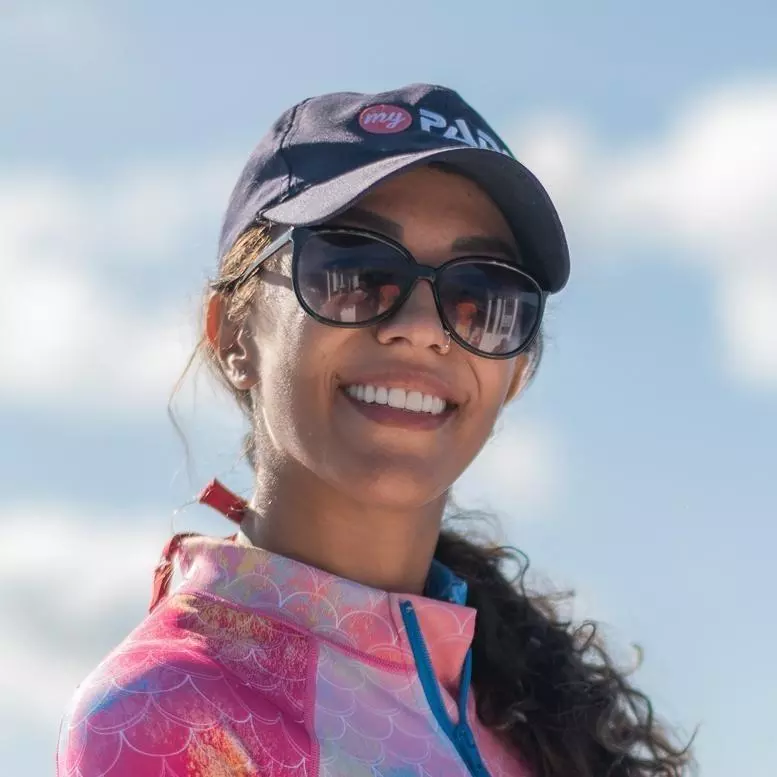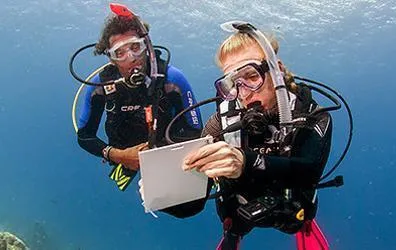 When you dive in a new environment, a new country or even a new dive site, you need to be aware of the specific diving conditions and hazards of the dive site. The Maldives is known for its strong currents which can cause divers to feel stressed and stress can result in accidents. Make sure you receive a briefing from a dive guide, the kind of things you can expect during the dive and understand how to handle it. A good dive briefing can avoid problems and accidents.
When you dive in a new environment, a new country or even a new dive site, you need to be aware of the specific diving conditions and hazards of the dive site. The Maldives is known for its strong currents which can cause divers to feel stressed and stress can result in accidents. Make sure you receive a briefing from a dive guide, the kind of things you can expect during the dive and understand how to handle it. A good dive briefing can avoid problems and accidents.
You may be an experienced diver with 500+ dives in a lake in the Netherlands, but when you dive in an unknown location, with strong currents, you have to be aware of the new conditions. Coldwater with bad visibly in The Netherlands will not help you in a strong current in the Maldives. It sounds cruel and maybe disrespectful, but those are the facts.
DIVE BRIEFINGS
Listen carefully to briefings and make sure you understand the water entry and decent procedures, visibility, currents, water temperature, and understand the accent and exit procedures. Plan your maximum depth and dive time, and what you should do if you are separated from the group and/or dive buddy.
For example, you will dive in a channel with a strong current. The dive guide informs everyone that the group has to enter the water fast and descend immediately. The current will bring you to the reef-edge at 30 metres. If you wait on the boat too long or linger on the surface, it will be impossible to reach the reef-edge on time and you miss the dive site.
This is a clear part of the briefing but when you don't listen or you have your own plan, then you will miss the dive site, your buddy has reached the site alone, potentially causing a stressful situation which could result in an accident.
BUDDY SYSTEM
As long you are not a certified "self-reliant diver" and/or don't have the right gear set up for being a self-reliant diver, your only air back up and help is from another diver. I have seen many cases where small problems have become a bigger problem simply because there was no immediate help from another diver. When you dive with your regular dive buddy you don't have to explain too much to each other before the dive, but with an unknown dive buddy(s) you have to spend some time, before the dive, discussing the dive plan.
THE DIVE GUIDE
What do you expect from a dive guide? What will be the responsibility of the guide? First of all, you are an autonomous diver and you are certified to dive with a buddy in the limits of your certification and experience. That can be:
- 18/20 metres as an Open Water Diver
- 30 metres as an Advanced/Deep Diver (max depth for recreational diving in Maldives by law)
The dive guide is primarily there to brief you about the local diving conditions, potential hazards and guide you underwater from point A to point B. that's the main job of the guide. The dive guide should be a dive professional with training in emergency first response and knowledge about how to deal with diving accidents. The dive guide is responsible for choosing the dive site and should choose a dive site that is suitable for the whole group of divers. When the levels between divers in the group are different, then the group should be split in two and a second guide should guide the second group.
When you believe that the guide is responsible for you and the dive, request a private guide who can take personal care of you. This is impossible in a big group. As you are certified, you have to plan and manage the dive with your buddy(s) in the limits of your certification. The dive guide can be there to help with problems but it is not the main job of a guide. Of course, most guides will help you when problems occur but the guide needs to see that you have a problem. When you are the last diver in a big group, this will be almost impossible.
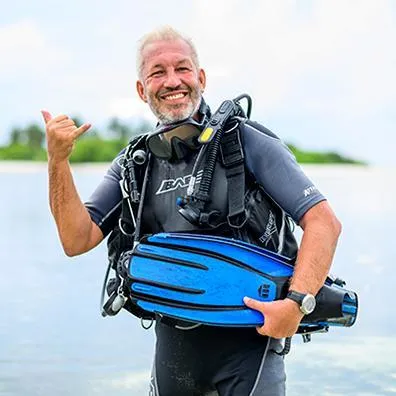
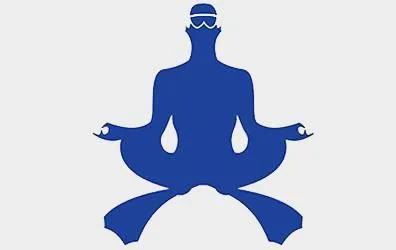 Are you physically and mentally fit for diving? This is a question you should ask yourself every time before you jump in the water. Most of us know that it's recommended to check once in a year if you are fit for scuba diving with a medical doctor. Some dive centers in the Maldives require a signed medical statement from a medical doctor before you can participate in diving activities. As you can understand, the medical statement is only reliable at the moment it was signed. From this moment to when you sign up at a dive center, your health conditions can change – in this instance, you need to inform the dive center about it.
Are you physically and mentally fit for diving? This is a question you should ask yourself every time before you jump in the water. Most of us know that it's recommended to check once in a year if you are fit for scuba diving with a medical doctor. Some dive centers in the Maldives require a signed medical statement from a medical doctor before you can participate in diving activities. As you can understand, the medical statement is only reliable at the moment it was signed. From this moment to when you sign up at a dive center, your health conditions can change – in this instance, you need to inform the dive center about it.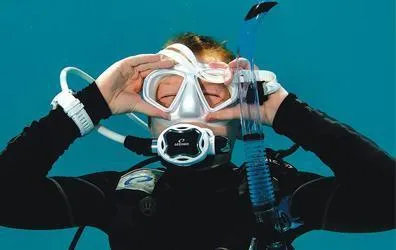 Many dive centers in the Maldives call your first dive a check dive and in my opinion, it is the most important dive during your trip. Some divers do not like to be checked. They are certified they are divers so why do they have to make a check dive? Most divers believe a check dive is a boring dive and they would prefer to go straight to Manta Point or Shark Point and not waste their time at a shallow place to be checked.
Many dive centers in the Maldives call your first dive a check dive and in my opinion, it is the most important dive during your trip. Some divers do not like to be checked. They are certified they are divers so why do they have to make a check dive? Most divers believe a check dive is a boring dive and they would prefer to go straight to Manta Point or Shark Point and not waste their time at a shallow place to be checked. When you dive in a new environment, a new country or even a new dive site, you need to be aware of the specific diving conditions and hazards of the dive site. The Maldives is known for its strong currents which can cause divers to feel stressed and stress can result in accidents. Make sure you receive a briefing from a dive guide, the kind of things you can expect during the dive and understand how to handle it. A good dive briefing can avoid problems and accidents.
When you dive in a new environment, a new country or even a new dive site, you need to be aware of the specific diving conditions and hazards of the dive site. The Maldives is known for its strong currents which can cause divers to feel stressed and stress can result in accidents. Make sure you receive a briefing from a dive guide, the kind of things you can expect during the dive and understand how to handle it. A good dive briefing can avoid problems and accidents.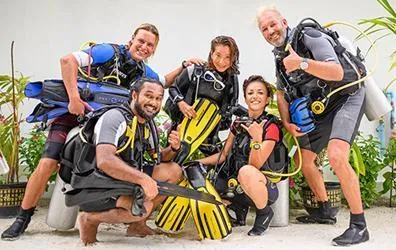 Every dive center has a legal obligation to provide safe scuba diving. All scuba diving related activities have to follow international diving standards, regulations and the local law.
Every dive center has a legal obligation to provide safe scuba diving. All scuba diving related activities have to follow international diving standards, regulations and the local law.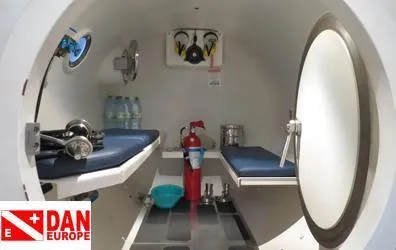 Scuba diving is enjoyed by thousands of people around the world every day and is considered a low-risk activity compared to many other outdoor and sporting activities – even such widespread activities as swimming, jogging and all-terrain vehicle riding have higher reported fatality rates than diving.
Scuba diving is enjoyed by thousands of people around the world every day and is considered a low-risk activity compared to many other outdoor and sporting activities – even such widespread activities as swimming, jogging and all-terrain vehicle riding have higher reported fatality rates than diving.